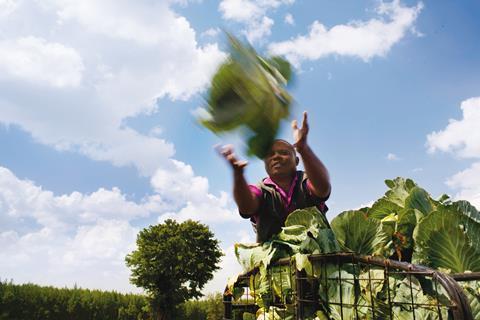More than half of US$160m pledge to end global hunger invested in vegetable seeds and R&D support for smallholder farmers

Bayer has announced a commitment of US$160m and singed the Zero Hunger Private Sector Pledge as part of its effort to help end global hunger.
The Pledge, in the context of the UN Food Systems Summit of 2021 and as a part of the Summit’s Zero Hunger Coalition, recognises the need for governments and the private sector to work together to end food scarcity.
Companies taking the pledge commit to investing money, resources and expertise in areas of concern within regions where they do business. Bayer’s commitment will go toward communities in Asia, Africa and Latin America.
Rodrigo Santos, member of the board of Bayer AG and president of the company’s Crop Science Division said the commitment was part of the Bayer’s ongoing efforts to address the issue.
“At Bayer, where we work every day toward realising our vision of Health for all, Hunger for none, it’s agonising to know that one in every 10 people worldwide goes to bed hungry,” said Santos,
“This crisis affects us all and needs the support of everyone to solve it. Our pledge further puts into practice Bayer’s commitment to help end hunger through alignment of our investments and business operations to achieve this goal.”
Bayer will invest over US$100m of its overall commitment into research and development to get quality vegetable seeds into the hands of smallholder farmers.
Through Bayer’s Vegetable Seeds business, these farmers will receive improved varieties of quality seeds critical to local diets like okra and bitter gourd.
They will also gain access to innovative farming solutions, designed to reduce field and post-harvest losses, such as in the Ansal tomato.
Bayer said the variety provides longer shelf life and fruit firmness which is already helping to decrease losses in India from about 30 per cent to less than 10 per cent.
Donating vegetable seeds to non-profit organisations is also part of the commitment, to help combat hunger and promote the increased consumption of fruits and vegetables.
Part of the US$160m commitment will also be invested in through partnerships and programmes that provide education, training, R&D, technical assistance.
These include Better Life Farming, a partnership between Bayer Netafim and the International Finance Corporation that makes farming solutions, agronomic advice and good agricultural practices available to rural growers.
Bayer has also partnered with the Inter-American Institute for Cooperation on Agriculture on the BayGAP programme which supports farmers to get certified and connected to the food value chain.
The Modern Breeding Project with the International Institute of Tropical Agriculture will also Bayer’s funding to support sustainable practices as well as education and training programmes.



